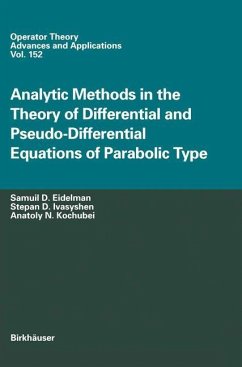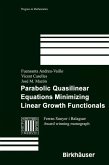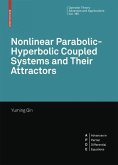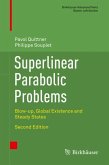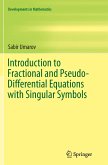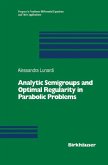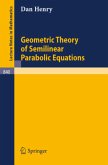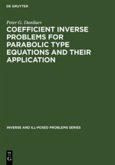The theory of parabolic equations, a well-developed part of the contemporary partial differential equations and mathematical physics, is the subject theory of of an immense research activity. A continuing interest in parabolic equations is caused both by the depth and complexity of mathematical problems emerging here, and by its importance in specific applied problems of natural science, technology, and economics. This book aims at a consistent and, as far as possible, a complete exposition of analytic methods of constructing, investigating, and using fundamental solutions of the Cauchy problem for the following four classes of linear parabolic equations with coefficients depending on all variables: -7 E : 2b-parabolic partial differential equations (parabolic equations of a qua- l homogeneous structure), in which every spatial variable may have its own to the time variable. weight with respect E : degenerate partial differential equations of Kolmogorov's structure, which 2 generalize classical Kolmogorov equations of diffusion with inertia. E3: pseudo-differential equations with non-smooth quasi-homogeneous symbols. E : fractional diffusion equations. 4 These classes of equations generalize in various directions the classical equations and systems parabolic in the Petrovsky sense, which were defined in [180] and studied in a number of monographs [83, 45, 146, 107, 76] and survey articles [102, 1, 215, 70, 46].
Hinweis: Dieser Artikel kann nur an eine deutsche Lieferadresse ausgeliefert werden.
Hinweis: Dieser Artikel kann nur an eine deutsche Lieferadresse ausgeliefert werden.

